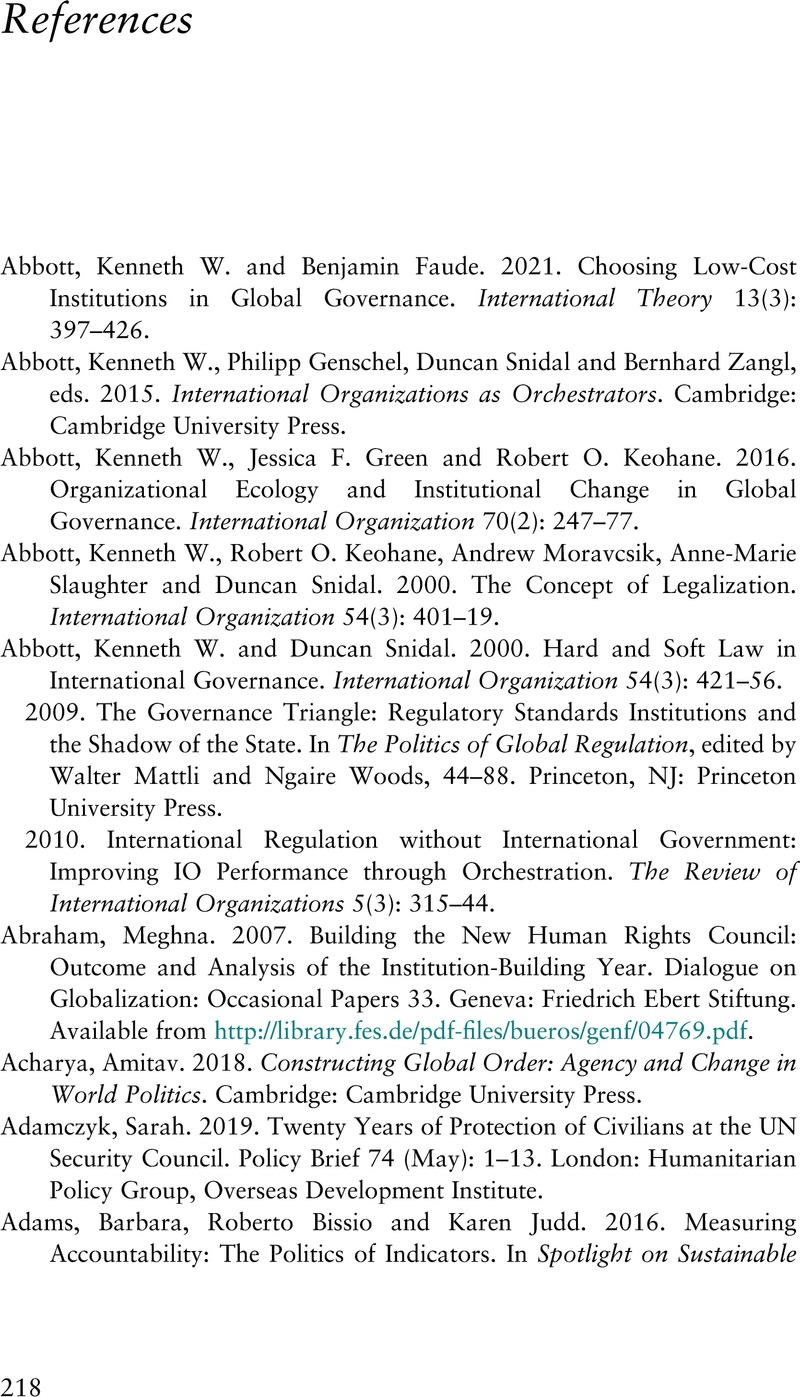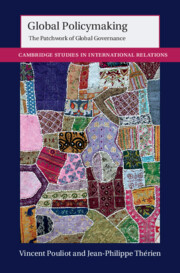Book contents
- Global Policymaking
- Cambridge Studies in International Relations: 162
- Global Policymaking
- Copyright page
- Contents
- Figures
- Tables
- Preface
- Abbreviations
- Introduction
- 1 Global Policymaking
- 2 The Making of Global Policies
- 3 The Sustainable Development Goals
- 4 The Human Rights Council
- 5 The Protection of Civilians
- 6 Key Trends in the Making of Global Policies
- Conclusion
- References
- Index
- Cambridge Studies in International Relations
- References
References
Published online by Cambridge University Press: 09 March 2023
- Global Policymaking
- Cambridge Studies in International Relations: 162
- Global Policymaking
- Copyright page
- Contents
- Figures
- Tables
- Preface
- Abbreviations
- Introduction
- 1 Global Policymaking
- 2 The Making of Global Policies
- 3 The Sustainable Development Goals
- 4 The Human Rights Council
- 5 The Protection of Civilians
- 6 Key Trends in the Making of Global Policies
- Conclusion
- References
- Index
- Cambridge Studies in International Relations
- References
Summary

- Type
- Chapter
- Information
- Global PolicymakingThe Patchwork of Global Governance, pp. 218 - 275Publisher: Cambridge University PressPrint publication year: 2023

